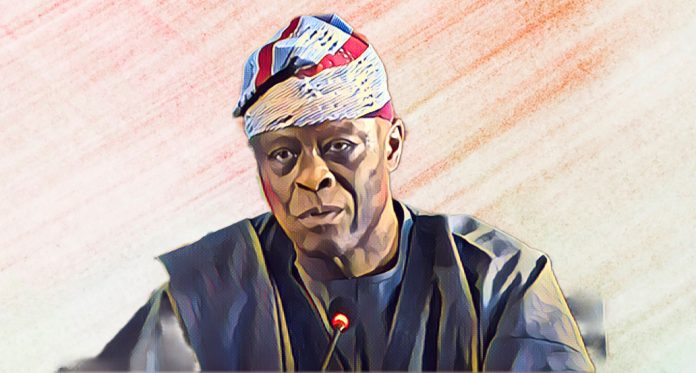Key Points
-
The cash transfer expansion will reach over 19 million poor households.
-
Wale Edun said the cash transfer expansion supports vulnerable Nigerians amid inflation.
-
The cash transfer expansion is backed by digital tools and World Bank funding.
The federal government of Nigeria is expanding its conditional cash distribution program to include more than 15 million households across the country. This shows that the government is trying to support people who are having a hard time financially.
Wale Edun, the Finance and Coordinating Minister of the Economy, unveiled the initiative in Abuja. He claimed that the administration is “deepening social inclusion through digital delivery systems.”
The Federal Ministry of Humanitarian Affairs and Poverty Alleviation operates the initiative through the National Social Safety-Nets Coordinating Office (NASSCO).
Since the start of 2024, it has given out more than ₦330 billion to 8.5 million families. Edun claimed that the expansion of cash transfers would extend that coverage even more, making sure that “no qualified vulnerable Nigerian is left behind.”
The purpose of expanding cash transfers is to involve more people
The project is financed by a $800 million loan from the World Bank. It obtains its beneficiaries from the National Social Register, which now includes verified information on roughly 20 million homes and 70 million persons.
Abiola Adeniran, the National Coordinator for NASSCO, noted that biometric verification and digital payments through banks and mobile wallets had made things more open and less prone to leak.
Edun underlined that the cash transfer expansion fits with President Bola Tinubu’s Renewed Hope Agenda, which emphasises on immediate efforts to minimise the consequences of inflation and the withdrawal of fuel subsidies. Households that have been validated through both the BVN and NIN systems are collecting payments of ₦25,000 every month.
Digital changes impact Nigeria’s welfare system
Officials indicated that the expansion would be based on digital infrastructure that makes it easier to trace and audit payments. Betta Edu, the suspended Humanitarian Minister who launched the digital deployment, had indicated before that the goal of the reform was to get rid of ghost beneficiaries and centralise welfare data.
Edun noted that the government’s strategy is “based on evidence and fiscally responsible,” and that payments will continue through both allocated monies and concessional funding. Dr. Ayo Teriba of Economic Associates and other economists suggested that if the project is done in a transparent fashion, it could be Nigeria’s best strategy to fight poverty.
Keeping up the pace even though the economy is bad
The minister also indicated that the next wave of funds would go to families in the North East who have been affected by war and areas in the South-South who are at risk of flooding. He claimed that cooperation with the National Bureau of Statistics (NBS) and civil society groups has made the procedures for keeping an eye on things better.
Edun remarked, “The goal is not just to help people in the short term, but also to help them build their human capital in the long term.”



